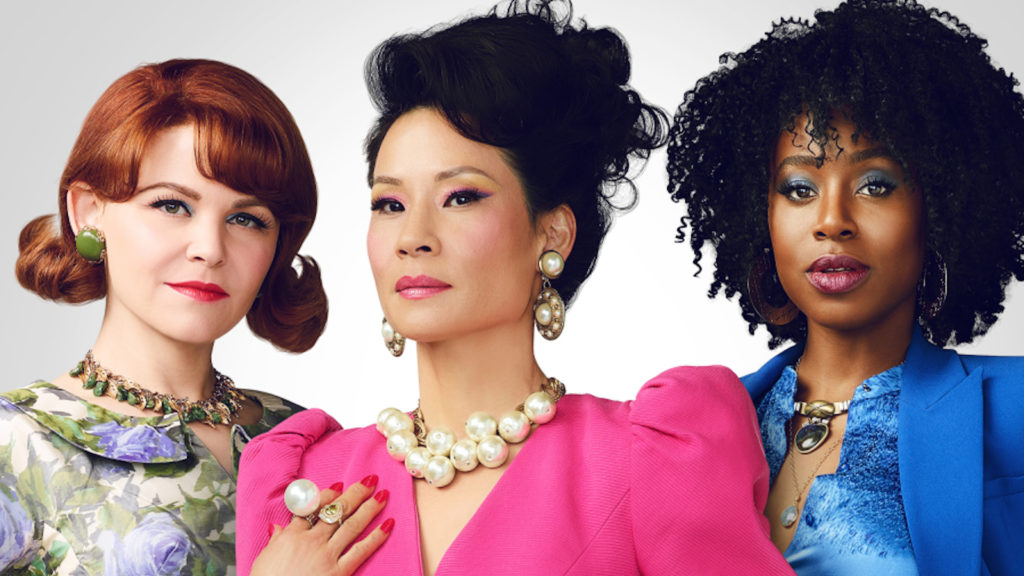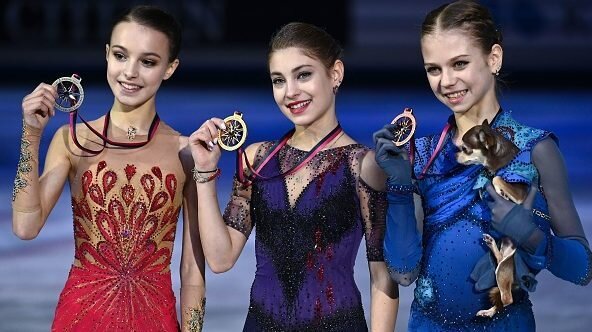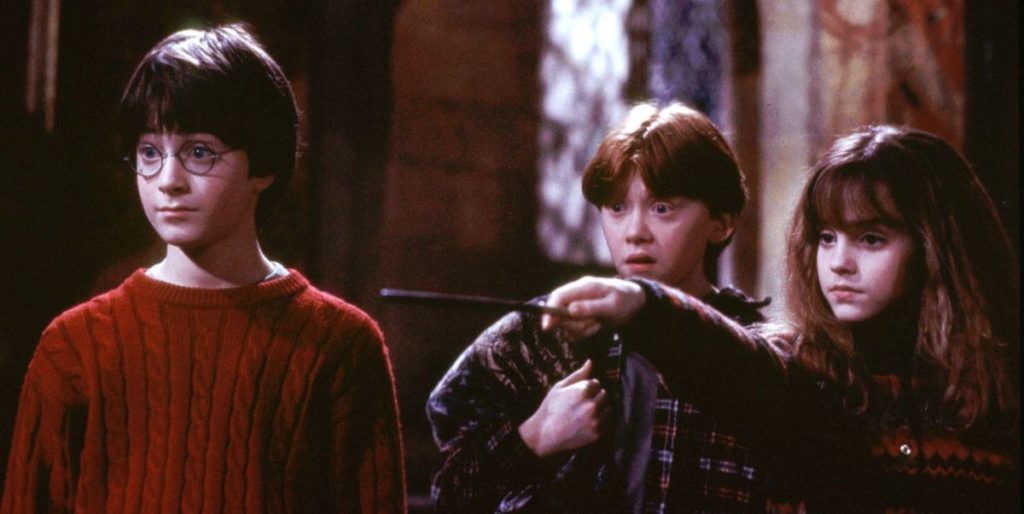Why Women Kill
Claire Thompson, Program Officer

I recently watched Why Women Kill, which is an entertaining, dark, comedy series set across three decades (60s, 80s and now), portraying three different women who find out their husbands have cheated on them and all respond differently. Starring Lucy Liu, Gennifer Goodwin and Kirby Howell-Baptiste, each story is brought to life by these phenomenal actors, and you really champion each female character. There’s comedy, mystery, feminism and murder, all the things that make you want to keep watching. The cinematic production is incredible, particularly with the different fashions and interior designs shown across the decades. I think one of the most clever elements, which ties all the storylines together, is each couple lives in the same mansion in LA. The producers have done a great job of changing the decor and fashion to reflect each decade, and this also allows them to seamlessly move between decades in the same episode. The last episode is especially powerfully shot. You’ll just have to watch it to see what I mean. It’s available now on SBS on-demand.
Figure Skating
Lou Garcia-Dolnik, Membership and Administration Officer

It’s ice skating competition season and while athletes are still bound by international travel restrictions, I’ve been gorging myself on all the new programs debuted on a national-level, particularly from Russian athletes who’ve dominated the world stage since Alina Zagitova’s Olympic win in 2018. Eteri Tutberidze’s group has held court since that victory, boasting a contingent of prize-winning skaters from the ISU Grand Prix Final Champion to the world record holder for the free skate, though 2020 has fissured Tutberidze’s monopoly over the Russian skating scene, with two of her best skaters opting to join Evgeni Plushenko’s academy at the onset of the virus. To underscore the profundity of that transition, it’s important to note that those skaters comprise two thirds of Russia’s ‘troika’, the teenage trio exclusively responsible for garnering Russia its gold, silver and bronze medals these past two years, also pegged for the Olympic podium in 2022.
The first of those, Alexandra Trusova, the first (teenaged) lady to attempt 5 quad jumps in a program and land the quad flip, recently debuted her short and long programs (spoiler: there’s a fall in this one) for the 2020-2021 season, which showcased the athleticism for which she is best known (perhaps figure skating’s most ambitious jumper), staying true to her remit of being more a technician than a traditionally lyrical/balletic skater. As such, her skates do have the tendency to feel a little programmatic, maybe even forced, though this clearly hasn’t been a deal breaker for the multi-award winning athlete.
My very favourite Alena Kostornaia also debuted her short program in an uncharacteristically laboured return to the ice—keeping in mind that Kostornaia opted to change coaches, and programs, just prior to the commencement of the competition season—though I’m especially excited to see how her long program shapes up, and if she’ll work her triple Axel back after a long coronavirus-mandated break. Kostornaia has always boasted gorgeous costumes, so, as always, I’m very excited to see what the new season might hold in store sartorially.
The third of the Troika and current Tutberidze skater, Anna Shcherbakova, who recently successfully landed the quad Lutz (one of the most technically challenging jumps in figure skating, showcased two gorgeous programs at her second Russian Cup Event, sweeping a pretty predicable victory over teammate Kamila Valieva. Until fairly recently, Shcherbakova’s skating has felt appropriate for her age (she’s only 16), but these programs were mature, effortlessly elegant and lyrical. It’s a real treat to see that level of artistry from any skater, let alone one so young—I would highly recommend them to anyone even mildly doubtful of what athletes can achieve in quarantine.
I haven’t had time to survey the Japanese skating scene, though am especially looking forward to favourites Rika Kihira, Wakaba Higuchi and, of course, two-time Olympic gold medalist Yuzuru Hanyu, whose programs are almost always accompanied by a hailstorm of Pooh-bears.
I’m hoping that the pandemic allows international competition soon, though there are plenty of videos in the meanwhile for anyone interested in falling down this particular rabbit hole.
Harry Potter Marathon
Sarah Mott, Projects and Communications Officer

I have a group of friends who are brought together by one thing: Harry Potter. We are the stereotype; millennials, we own witty HP-themed t-shirts, some of us played quidditch while in university, and, duh, of course we’ve done the Pottermore quiz to see which houses we’re in (Slytherin, no shame 🙌🏽🐍). We each have a story of secretly hoping to receive a letter in the mail when we were twelve, that never came.
Halfway through the pandemic we decided it’s time to have marathon – all the movies (19 hours and 39 minutes) across a few Sundays. It’s partly nostalgia – we grew up with the books and then the actors, we know every line and every scene – and partly comfort. As the world crumbles around us, we know that this adventure ends with the triumph of good over evil. Across the last few Sundays we’ve gathered at each other’s houses, laden with themed food (pumpkin pasties, chocolate frogs etc), drawn the blinds and watched for 6-8 hours at a time.
We’ve collectively seen these films hundreds of times, but something feels different this time around. Mostly due to JK Rowling’s public comments about sex, gender and identity. As we come to terms with this fall from grace in the era of cancel-culture (not a thing, but that’s for another rant 😉), it forces us to inspect her books and films for traces of her close-minded, transphobic views. Did the books really promote acceptance and inclusion? Or did we project that onto them? Can we separate the creation from the creator? Rowling’s post-book revisionism on characters such as Dumbledore and LGBTQI+ undertones now seem lazy. And then there is that hetero-nonsense in the final chapter of the series where everyone seems to end up paired together like the end of a Danielle Steel novel.
Maybe this marathon is a last hurrah – a goodbye to a set of stories that defined acceptance and friendship for many of us. You could say that finding flaws in your heroes is part of growing up. The different feeling is also tied up in ageing – we recently discovered that gen z make fun of millennials for our obsession with Harry Potter – a rude discovery, as we hit the 30 milestone, that we are not the youth anymore.
We have 429 minutes left to watch this Sunday, and we’ll watch it possessively, wistfully, like we used to, until the end.
*
More from Writing NSW
Check out our full range of in-person writing courses in Sydney, our online writing courses and our feedback programs to see how we can help you on your writing journey. Find out about our grants and prizes, as well as writing groups across NSW, and sign up to our weekly newsletter for writing events, opportunities and giveaways.
